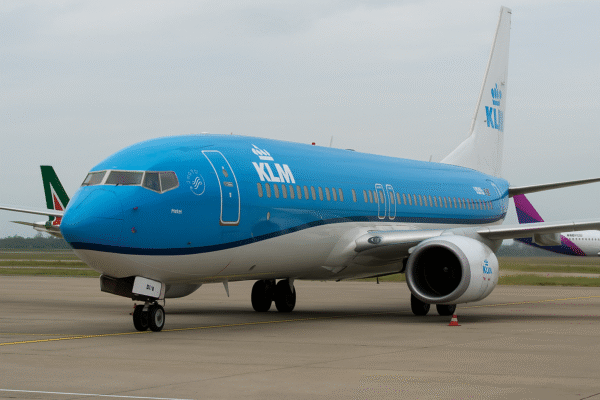Travel between Italy, the Netherlands, and Hungary faces major disruptions as KLM cancels three critical flights on Monday. The airline grounded the following services: the Milan–Amsterdam leg (flight KLM1598), Amsterdam–Budapest route (flight KLM1369), and the return Budapest–Amsterdam leg (flight KLM1370), stranding passengers across Europe.
Travel Chaos at European Gateways
These cancellations hit hard during peak travel hours, especially affecting routes vital for both tourism and business travel. While exact figures remain unclear, reports suggest that around 11% of KLM’s daily schedule was impacted, creating widespread uncertainty for passengers on these key corridors.
Operational Pressures Behind the Disruptions
Although KLM has not publicly explained the precise cause, such abrupt cancellations often result from operational factors including crew shortages, technical complications, or scheduling conflicts. Airlines across Europe have been grappling with staffing gaps and heightened demand, making route reliability more fragile than usual.
Impact on Passengers and Tourism
Disrupted travel plans have left many travelers scrambling to rearrange their itineraries. Tourists expected in Milan, Amsterdam, or Budapest for sightseeing, local culture, or connecting onward are now facing delays of several hours—or worse, rebooking nightmares.
- Milan Linate Airport (LIN): Despite being smaller than its counterpart Malpensa, Linate serves as a vital gateway for domestic and European travel. The cancellation of KLM1598 leaves a gap in connectivity for travellers heading west.
- Amsterdam Schiphol Airport (AMS): As one of Europe’s busiest hub airports, disruptions at Schiphol ripple extensively, impacting onward connections across continents.
- Budapest Ferenc Liszt International Airport (BUD): This central European hub plays a critical role for both regional and international travelers. The grounded flights hamper tourist arrivals and business trips alike.
KLM’s Response and Passenger Assistance
KLM is advising affected travelers to use its website or mobile app to explore rebooking options or request refunds. The airline’s self-service tools are available 24/7 to manage changes, while customer service teams assist with rescheduling. Passengers may also be eligible for compensation under EU Regulation EC261—entitlements include refunds, rebookings, meal vouchers, or overnight accommodations depending on the circumstances.
Broader Travel Industry Context
This episode echoes a broader pattern impacting global airlines: the struggle to maintain smooth operations amid fluctuating demand, ongoing maintenance issues, and staffing constraints. These challenges emphasize the importance for travelers to stay flexible, monitor updates in real time, and prepare for possible itinerary alterations.
Looking Forward: Tips for Travelers
- Stay updated through KLM’s digital channels for real-time changes.
- Act swiftly: Early contact with the airline improves chances to rebook nearby alternatives.
- Know your rights: EC261 may provide compensation or rebook options where applicable.
- Allow extra buffer time when planning travel around such volatile periods.
Summary
KLM’s unplanned cancellations of three flights linking Milan, Amsterdam, and Budapest are causing extensive disruptions in a key European tourism triangle. Passengers are advised to act quickly by using the airline’s digital services to rebook or claim refunds, and to be aware of EU compensation rules that may apply.
Let me know if you’d like further updates—whether it’s details on alternative routes, compensation guidelines, or tips for traveling through these European hubs.
For more travel news like this, keep reading Global Travel Wire



















